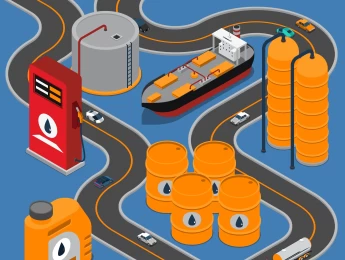This program is designed to immerse you in the dynamic world of destination and hospitality, emphasising vision, leadership, productivity, and strategic business implementation.
To create a successful and profitable destination, it’s important to understand the key areas, including visionary leadership, to cultivate an innovative mindset and navigate the evolving landscape of destination and hospitality. Productivity is also essential to keep moving and fluidly make changes based on your audience, optimising workflows and leveraging technology for efficiency gains.
Implementing business strategies tailored to destination and hospitality management will be a focal point, offering practical insights aligned with industry trends and consumer preferences. This course will also help you to stay updated on the latest industry trends, emerging technologies, and global best practices to elevate your expertise and maintain competitiveness.
You will also learn essential skills in customer service, client and stakeholder management, team management, and crisis handling, which will enhance your professional credibility by providing the knowledge and tools necessary for making strategic decisions, positively impacting your organisation, and building lasting professional relationships.
Upon completion of this course, participants will be able to:
- Grasp the process of establishing a destination brand.
- Distinguish between positioning and branding concepts.
- Acquire the skills to formulate a brand promise
- Comprehend the interpretation of financial statements
- Learn methods for assessing financial accountability in destination organisations
- Uncover the best marketing secrets for your target audience.
- Understand the food and beverage market and how to make a profit.
- Assess the risks and plan for audits and site inspections.
- Understand what to expect when taking a DMCP exam for certification.
This course is designed for anyone responsible for managing a destination and making trending changes to marketing initiatives whilst handling a set budget. It would be most beneficial for:
- Professionals intending to take the DMCP exam
- Business Owners
- Destination Managers
- Marketing Executives
- Financial Officers
- Partnership Managers
- Food & Beverage Professionals
- Risk Assessors
This course uses a variety of adult learning styles to aid full understanding and comprehension. Participants will look through previous case studies to understand the magnitude of responsibilities that come with destination management. They will talk through trainer-led presentations to understand the individual elements that they’ll be responsible for and get to put into practice, the tools and techniques that will enable them to make organisation and time management of all tasks much more manageable.
In groups, the participants will assess the risks of various destinations and prepare an action plan for a site inspection and make amendments to projects and marketing based on current risks.
Day 5 of each course is reserved for a Q&A session, which may occur off-site. For 10-day courses, this also applies to day 10
Section 1: Global Clients & Destination History
- Recognising the role of history and location in destination marketing.
- Understanding the cultural and historical significance of a destination.
- Leveraging the unique stories and heritage of a destination for branding.
- Incorporating the geographical features and landmarks in marketing strategies.
Section 2: Site Inspections & Risk Assessments
- Legal and regulatory considerations in site inspections and risk assessments.
- Developing a checklist for effective site inspections.
- Identifying and evaluating potential risks in different destination settings.
- Collaborating with local authorities and stakeholders during inspections.
- Health and safety considerations in destination site assessments.
- Environmental impact assessments and sustainable practices.
Section 3: Food & Beverage Planning
- Budgeting and cost control in food and beverage planning.
- Vendor selection and negotiation for quality ingredients and services.
- Dietary considerations and special requests in hospitality settings.
- Food safety and hygiene regulations in destination catering.
- Sustainable practices in food and beverage planning for hospitality.
- Beverage selection and pairing for diverse events and occasions.
Section 4: Funding, Budgeting & Sponsorships
- Leveraging public-private partnerships for destination development.
- Exploring grant opportunities and funding programs.
- Measuring and communicating the return on investment (ROI) for sponsors.
Section 5: Sustainability & Ethics
- Community engagement and social responsibility.
- Ethical considerations in employment practices and staff management.
- Environmental impact assessments and carbon footprint reduction strategies.
- Eco-certifications and standards for sustainable hospitality destinations.
- Promoting responsible tourism practices among guests and visitors.
- Integrating local culture and traditions in sustainable destination management.
Section 6: Using Technology to Harness Your Benefits
- Data analytics and insights for informed decision-making.
- Augmented Reality (AR) and Virtual Reality (VR) applications in-destination experiences.
- Technology tools for efficient destination logistics and operations.
- Customer Relationship Management (CRM) systems for personalised guest interactions.
- Cybersecurity considerations in destination technology adoption.
Section 7: Branding & Marketing
- Designing visually appealing promotional materials.
- Public relations strategies and media relations for destination visibility.
- Crisis communication planning and management in destination marketing.
- Incorporating cultural and local elements into destination branding.
- Metrics and Key Performance Indicators (KPIs) for measuring marketing success.
Section 8: Taking the Destination Management Certified Professional Exam
- Overview of the Destination Management Certified Professional (DMCP) exam.
- Understanding the exam structure, format, and scoring criteria.
- Study strategies and time management for exam preparation.
- Key content areas and domains covered in the DMCP exam.
- Review of destination management principles, theories, and best practices.
Upon successful completion of this training course, delegates will be awarded a Holistique Training Certificate of Completion. For those who attend and complete the online training course, a Holistique Training e-Certificate will be provided.
Holistique Training Certificates are accredited by the British Assessment Council (BAC) and The CPD Certification Service (CPD), and are certified under ISO 9001, ISO 21001, and ISO 29993 standards.
CPD credits for this course are granted by our Certificates and will be reflected on the Holistique Training Certificate of Completion. In accordance with the standards of The CPD Certification Service, one CPD credit is awarded per hour of course attendance. A maximum of 50 CPD credits can be claimed for any single course we currently offer.
- Course Code IND15-110
- Course Format Classroom, Online,
- Duration 5 days














